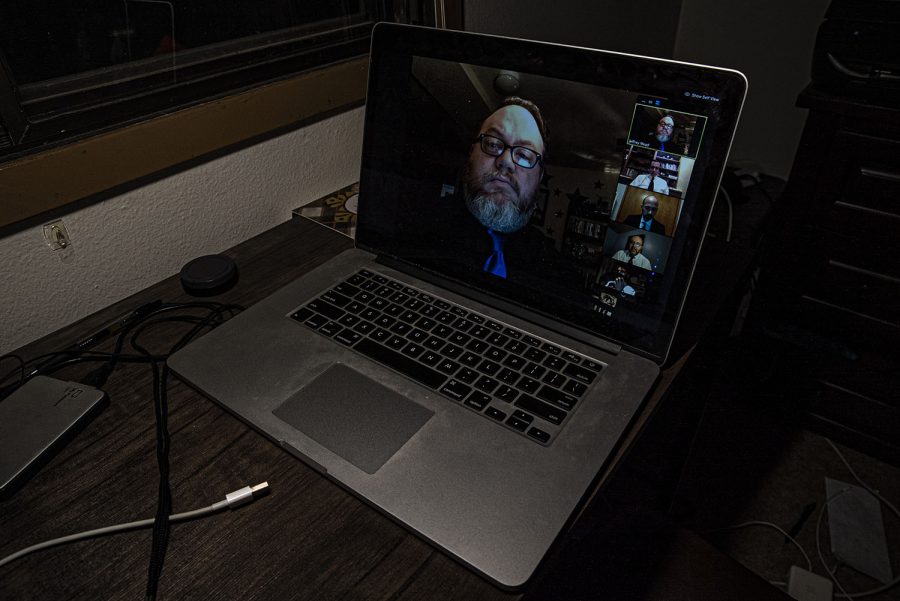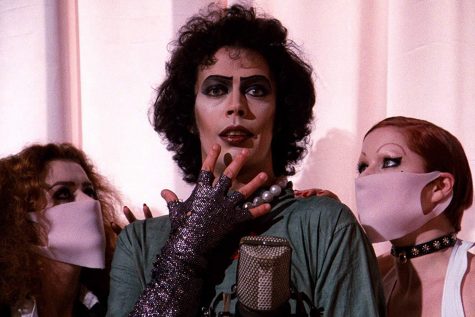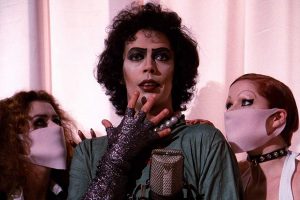Iowa City Community Theater presents one-night-only Halloween performance of ‘War of the Worlds’
This Halloween, the community theater will present a virtual performance of the 1938 radio drama “The War of the Worlds.” The performance is also the first production of the theater’s landmark 65th season.
The Iowa City Community Theater stages a virtual rehearsal for their one night only reading of the War of the Worlds radio drama on Tuesday, October 26th, 2020. Due to social distancing regulations and safety concerns from the COVID-19 Pandemic, the Iowa City Community Theater has tried to figure out ways to continue performing while keeping performers and audiences safe.
October 27, 2020
Alien invasions, interstellar war, and the end of the world? This Halloween, the Iowa City Community Theatre’s special one-night performance of “The War of the Worlds” will be one to remember.
The theater will present a single production of “The War of the Worlds” Oct. 31 at 8 p.m. The play was originally broadcast on CBS Radio in 1938, as an episode of radio drama anthology series The Mercury Theatre on the Air, created and narrated by actor and future filmmaker Orson Welles.
Famously, the production caused a short-lived panic throughout the U.S. among people who did not know the broadcast was fictional and thought that an actual alien invasion had doomed the world.
The digital performance will be a prerecorded production, live-streamed via “Broadway on Demand,” a theatre-focused streaming service. Members and patrons are encouraged to keep an eye on the Iowa City Community Theatre’s website and social media for the link to the performance, said Jeffrey Allen Mead, director of the production. Mead also plays the lead role of Orson Welles as his character in the play, Professor Pierson.
The performance will reenact the events as they happened in 1938, when the broadcast first aired.
“In a perfect world, sans-COVID-19, we would have built a stage set to replicate a radio studio of the 1930s, and our actors would be standing at microphones,” Mead said. “Obviously, we don’t have that option, so each of our actors will be standing or sitting in front of their devices to deliver their performances.”
Just as “The War of the Worlds” did in the ‘30s during its first broadcast, the performance is expected to provide an eerie, surreal experience for those who listen to it, though it likely won’t cause a panic over supposed extraterrestrial invaders.
The radio drama is based on an 1898 novel of the same name by English author H.G. Wells and has been adapted in a multitude of productions since then. Actor Nick Rudzianski, who has worked with the Iowa City Community Theatre since 2015 and will play various roles in the performance, said he is particularly excited to be a part of such an infamous production, even if it is entirely virtual.
RELATED: Riverside Theatre soars with new virtual production of ‘Grounded’
“I’m excited to take on such a well-known piece of literature,” Ruzianski said. “‘War of the Worlds’ has been very influential as a story, radio play, and movie, and getting a chance to dive into something like that is really cool. I really like the idea of going with a radio play and allowing actors to try something new, while putting out a great show that will not only entertain, but also take into account the safety of our audience and performers. I think this production will help show what can be done theater-wise in this difficult time.”
Actor Jacob Glass, who has worked with the theater for the last two years and is also taking on multiple roles in the performance, said the virtual nature of the production can be beneficial because it still allows actors to perform during the COVID-19 pandemic. He added that virtual performances allow performers to reach a larger audience, which calls back to the original 1938 broadcast.
“Being virtual makes it so much more accessible to everyone,” Glass said. “I personally love it because it gives a bit of an homage to the 1938 radio play where some people allegedly thought the broadcast they heard was really happening and caused a small panic. What a great time to do something like that in the year 2020 where everything is already so crazy — what else could happen?”

















